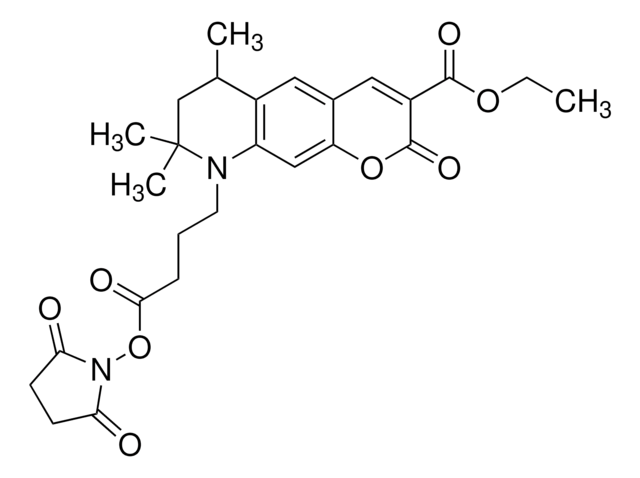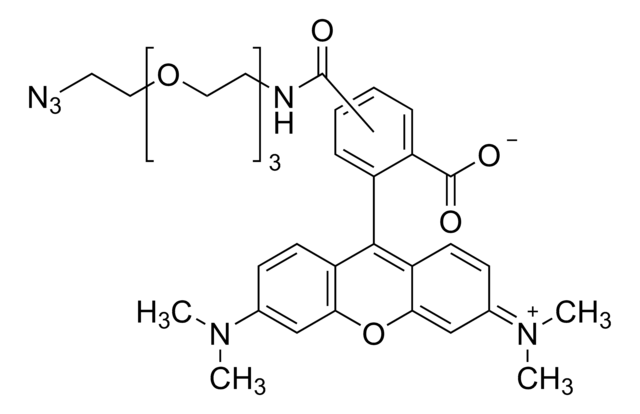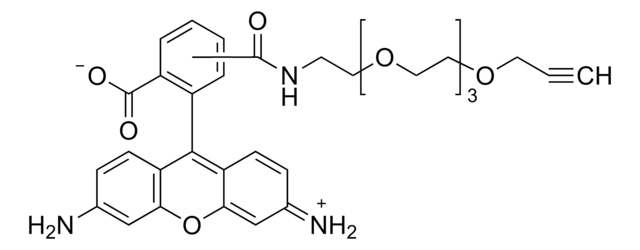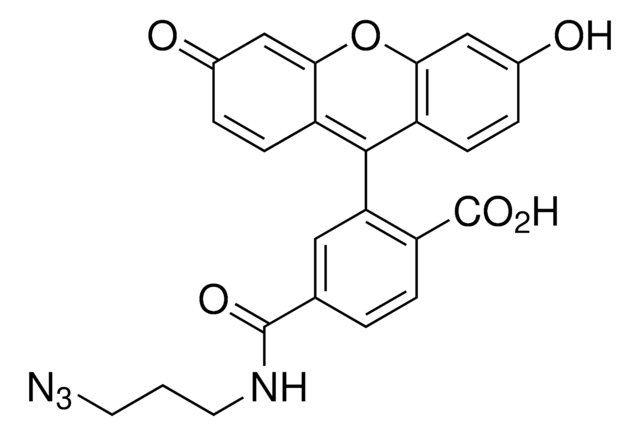41986
Atto 550 azide
BioReagent, suitable for fluorescence
Sign Into View Organizational & Contract Pricing
All Photos(1)
About This Item
UNSPSC Code:
12352125
NACRES:
NA.32
Recommended Products
product line
BioReagent
Quality Level
Assay
>90% (HPLC)
manufacturer/tradename
ATTO-TEC GmbH
transmittance
254 nm
550 nm
fluorescence
λex 554 nm; λem 576 nm±10 nm in 0.1 M phosphate pH 7.0
λ
(ethanol with 0.1% trifluoroacetic acid)
UV absorption
λ: 553-559 nm Amax
suitability
suitable for fluorescence
storage temp.
−20°C
Legal Information
This product is for Research use only. In case of intended commercialization, please contact the IP-holder (ATTO-TEC GmbH, Germany) for licensing.
Not finding the right product?
Try our Product Selector Tool.
Storage Class Code
11 - Combustible Solids
WGK
WGK 3
Flash Point(F)
Not applicable
Flash Point(C)
Not applicable
Choose from one of the most recent versions:
Certificates of Analysis (COA)
Lot/Batch Number
Don't see the Right Version?
If you require a particular version, you can look up a specific certificate by the Lot or Batch number.
Already Own This Product?
Find documentation for the products that you have recently purchased in the Document Library.
Smart-aggregation imaging for single molecule localization with SPAD cameras.
Gyongy, I.; et al.
arXiv (2016)
Binding of Biotin to Streptavidin: A combined fluorescence correlation spectroscopy and time-resolved fluorescence study.
Stromqvist, J., et al.
The European Physical Journal - Special Topics, 199, 181-194 (2011)
Hanna Mannell et al.
Pharmaceutical research, 29(5), 1282-1294 (2012-01-26)
Site specific vascular gene delivery is a promising tool for treatment of cardiovascular diseases. By combining ultrasound mediated microbubble destruction with site specific magnetic targeting of lentiviruses, we aimed to develop a technique suitable for systemic application. The magnetic nanoparticle
Use of universal reporter primers in multiplex PCR of autosomal loci.
Favaro, E. C., et al.
Forensic Science International: Genetics Supplement Series, 3, e71- e72 (2011)
Rula Masoud et al.
ACS nano, 6(7), 6272-6283 (2012-06-06)
We present a test case example of a detailed single-molecule fluorescence study of one of the most sophisticated and complex DNA devices introduced to date, a recently published autonomous bipedal DNA motor. We used the diffusion-based single-molecule Förster resonance energy
Our team of scientists has experience in all areas of research including Life Science, Material Science, Chemical Synthesis, Chromatography, Analytical and many others.
Contact Technical Service




